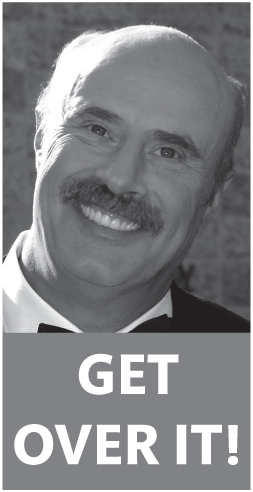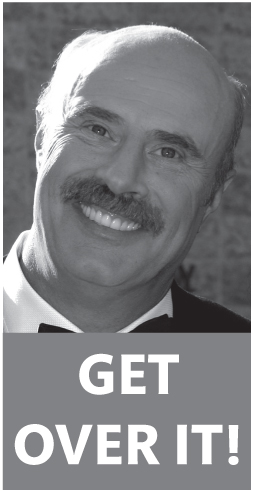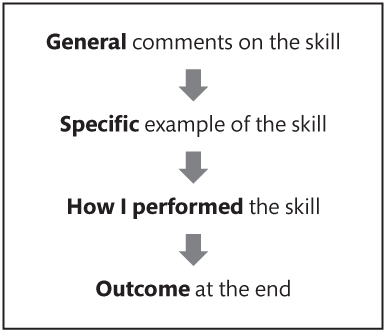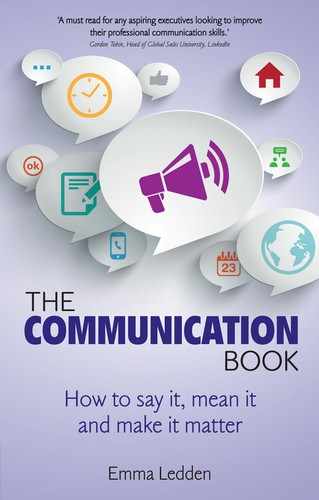STEP 1
Know the purpose
Job interviews are the one great equaliser among us. We all have to do them.
No matter our age, experience or background, they shake us to our very core. Who does not lie awake at night wondering how to answer that question: ‘What is your biggest weakness?’. Aaaaaaaaaggghhhhh!
So let’s start with the basics.
What is the job of a job interview?
The job of a job interview is to find the right person for the job.
You have 10 candidates who all want the job and all think they are the right person.
The job interview is the filtering process each candidate must go through.
These 10 candidates must prove they are the right person for the job. The onus is on the candidate and not the interviewer. This is not always an easy reality for candidates to face.
There are three major obstacles that must be overcome to do well in a job interview.
1. I deserve it
A lot of people who are preparing for a job interview feel they deserve the job and that it is unfair to have to interview to get it. They feel their years of service should speak for themselves.
Here’s the thing. Maybe it’s not fair. Maybe you do deserve the job. Maybe you have been doing the job for two years without the title, recognition or salary. Maybe… but that is not how the world works.
I am going to have to ‘Dr Phil’ you now. Are you ready…

Job interviews are a huge part of business life and career success.
You have to do them. You have to go into them with an attitude of fight and want. If you really are the right person for the job then it should be no problem for you to prove that to an interview panel.
Which leads me on to the second biggest issue.
2. I don’t want to sell myself
Another very common statement made to me by people going for job interviews is ‘I don’t want to sell myself’.
They tell me: ‘I don’t feel comfortable talking about myself. I don’t want to brag. I don’t want to come across immodest. I don’t want to be too pushy, arrogant or in-your-face.’

THE WHOLE POINT OF A JOB INTERVIEW IS TO SELL YOURSELF
Selling yourself in a job interview does not mean:
- you lie or exaggerate;
- you make big statements you can’t back up;
- you are loud and arrogant.
This is not about employing any dishonest car-salesman tactics, or pretending to be something you are not. Selling yourself at a job interview is not proclaiming how great you are in a boastful manner. It is about proving you are the right person for the role.
Selling yourself at a job interview is about:
- understanding the role and the skills needed;
- telling the interviewer that you have those skills;
- proving you have those skills by using real examples and evidence from your career.
You must be prepared to do this if you are to have any chance of job-interview success.
3. It’s not an oral exam
Do you remember doing oral exams in school? You go into the room with the examiner, you sit glued to the chair, petrified, waiting. Waiting for the first question. Waiting for the next question. Waiting for the right question. The question you hope will come. The question you studied for. This is so often how people approach a job interview.
You can’t take this passive approach to job interviews.
Job interviews are not oral exams and you are not 15 years old any more (thankfully).
Job interviews are a negotiation. The interviewer is coming to the table with a job – you must come with something too.
You must come with your skill set and with examples to back those skills up. You must come with enthusiasm and a want to communicate and negotiate. You must come to a job interview ready to prove you are the right person for the job.
To succeed at a job interview you must:
- look at the job spec and figure out what skills are needed;
- be honest about whether you have those skills;
- prepare examples from your career history to prove you have those skills.
A search for skills
The first step to prepare for a job interview is to figure out the skills required for the role. Some job specs spell the skills out for you and others are less clear.
Let’s look at an example of a role for a project manager.
Description: project manager
Project manager job duties:
- Accomplishes human resource objectives by recruiting, selecting, orientating, training, assigning, scheduling, coaching, counselling and disciplining employees; communicating job expectations; planning, monitoring, appraising and reviewing job contributions; planning and reviewing compensation actions; enforcing policies and procedures.
- Achieves operational objectives by contributing information and recommendations to strategic plans and reviews; preparing and completing action plans; implementing production, productivity, quality and customer-service standards; resolving problems; completing audits; identifying trends; determining system improvements; implementing change.
- Meets financial objectives by forecasting requirements; preparing an annual budget; scheduling expenditures; analysing variances; initiating corrective actions.
- Updates job knowledge by participating in educational opportunities; reading professional publications; maintaining personal networks; participating in professional organisations.
So what skills are they looking for here?
Based on the job spec, I would say they are looking for:
- budget management;
- coaching;
- supervision;
- recruitment;
- project management;
- people management;
- process improvement;
- self-development;
- planning;
- performance management;
- verbal communication;
- leadership.
This list is a great starting place because once you are clear on the skills needed you just need to use those skills to answer the interview questions.
The other bit of good news is that a lot of jobs require similar professional skills, so it shouldn’t be too hard to identify which skills are needed for any role.
Start by examining the job spec on offer. Then look at similar job specs on the internet to get more information if necessary.
Here is a list that covers most professional skills, to help you identify which skills you might need to talk about at your job interview:
Teamwork
Managing change
Developing others
Managing people
Communication
Influencing others
Building relationships
Customer focus
Information gathering
Conceptual thinking
Strategic thinking
Technical expertise
Initiative
Innovation
Results-orientated
Decisiveness
Self-confidence
Stress management
Flexibility
STEP 2
Understand your listener
The person/people interviewing you is/are human
They have friends, a family, are overworked, underpaid and, believe it or not, they are just as stressed and nervous to be there as you are.
I train both interviewers and interviewees and I honestly believe the first group are more nervous than the latter.
Why? There are a few reasons:
- No training: most interviewers I have met have never been trained to be an interviewer. It is a skill you need to learn and, without the tools to ask good questions or to listen effectively, it can feel very daunting.
- The choice: interviewers have the power to choose one candidate over many others. In fact, this is their role and they do not take it lightly, in my experience. All job interviewers are aware of the choice they must make and how only one person can be chosen. They also must be able to stand by that choice if questioned on it.
- The cost of a bad hire: they say it is better to make no hire than the wrong hire. Picking the wrong person at a job interview has enormous collateral costs, both on the culture and the bottom line of an organisation.
THE OFFER
Tony Hsieh, CEO of Zappos, has found a way to weed out employees who aren’t fully committed right at the start.
All new Zappos employees are greeted with a fourweek training programme. At the end of the first week everyone is offered $2,000 to quit. The offer stands until the end of the fourth week. Zappos wants employees who really want to work for them, and no one else.
The role of the interviewer
The role of the interviewer is to find the right person for the job.
They do this by:
- understanding the key skills needed to perform the role;
- finding out if the candidate has the required skills by asking the right questions;
- assessing all this information and choosing the best candidate.
An interviewer’s job is to get behind your CV and really examine the skills you possess.
The interviewer will look at certain things:
- Whether there are any gaps in the timeline of your CV.
- What the key events in your career are thus far.
- What your core skills are, based on your work to date.
- What you are like – education, hobbies and interests.
Criticisms of the candidate
Interviewers do not have an easy job, and the ones I have worked with say interview candidates can be their own worst enemies by:
- not preparing for the interview;
- not listening to the questions or answering the wrong question;
- providing irrelevant information;
- making negative comments about themselves, thus showing a lack of confidence;
- not taking opportunities to sell themselves;
- not showing enthusiasm or passion.
Be your own best interviewer
As interviewers are looking to get as much relevant information as possible, they will usually ask a series of leading questions.
An example of a leading question is:
Question: ‘Give me an example of when you worked on a team?’
Answer: ‘I have a number of examples I could share with you. In one instance, when I was working at XYZ Company, the IT team was pulling together a bid for a large piece of work and the staff member that normally helps them out was on leave. I offered to help them and worked late every night for two weeks to ensure they had all the information they needed. As it turned out, we won the bid and I was promoted as a result.’
But what if the interviewer doesn’t ask a leading question, or is trying not to help you out too much? Then they may ask a more general question like this:
Question: ‘Are you a good team player?’
Answer: ‘Yes, I am a good team player and have worked on lots of teams.’
And you stop there. They asked a question and you answered it.
The problem here is the interviewer does not have the information they need now to assess you properly. I know it could be argued they didn’t ask a good question, well at least not a leading one. But this is where it is over to you.
You need to be your own best interviewer. You need to imagine that every question the interviewer asks requires more detail and examples.
Question: ‘Are you a good team player?’
Answer: ‘I love working as part of a team and yes, I believe I am a very good team player. I have a number of examples I could share with you to prove this. In one instance, when I was working at XYZ Company, the IT team was pulling together a bid for a large piece of work and the staff member that normally helps them out was on leave. I offered to help them and worked late every night for two weeks to ensure they had all the information they needed. As it turned out, we won the bid and I was promoted as a result.’
The interviewer’s role is to find out if you have the skills, knowledge and attitude that fit the job.
You must help them with this search. You can’t rely on them to always ask the right questions.
No matter the question, you must always have the right answer.
STEP 3
Prepare to speak
Having the right answers
There are three parts of a job interview you need to prepare for:
Opening questions
‘TELL US ABOUT YOURSELF.’
This is normally the first question in a job interview and it can be the most dangerous.
Where do you start, where do you end, and how much do you say?
The first thing to know here is, although they may not say it, this question has a second part.
‘Tell us about yourself, in relation to this role.’
When you are asked to talk about yourself at a job interview they are not looking for what you did last weekend, what your favourite colour is or any other information that may in any way distract from the fact you are the perfect person for this job.
The question ‘Tell us about yourself’ is your first opportunity to tell this interview panel you are the right person for the job. It is your first opportunity to show you understand the role, the skills required and to show your passion.
If we use our project-manager example from earlier, the answer might be something like:
‘I have been a project manager now for 10 years, working on small teams with as few as 3 people, to multi-million pound projects with teams of 40 people. My biggest strengths are budgeting and coaching junior team members to deliver on-time and on-target. This is something I really enjoy doing. I have invested in my own self-development over the years, attending many courses on presentation and negotiation skills.
I believe these skills are vital in a project-manager role to communicate with the various groups.’
‘WHY DO YOU WANT THIS JOB?’
I once did interview training with an 18-year-old guy, just out of school, going for a job as a bank clerk. He didn’t want the job, but his parents told him he had to go for it.
In the training session I asked him why he wanted the job. He told me the bus stop to work was right outside his house so that was handy for him. I asked if that was the only reason he wanted the job. He said yes.
It is still, to date, the most honest answer I have ever heard to that question.
It is also completely the wrong answer.
When you go for a job there are, of course, many personal reasons you have for wanting the job. They may be money-, career- or transport-related. However, whatever your personal reasons for wanting a job, these are not relevant, or at least are not what you tell an interviewer. Once again there is a second part to the question that is unsaid. It is:
‘Why do you want this job, in relation to us?’
It simply comes back to the WIIFM – the ‘What’s in it for me?’ question.
The interview panel want to know what they will get out of hiring you.
Going back to our project-manager example, the answer might look something like this:
‘The reason I applied for this role is that I have always admired your work and I feel this particular project would be a great fit for my skills. I believe this project will need strong budgeting skills, which I have, and I also believe you will need specific expertise in the area of health care and I can bring that to the role, based on my previous experience with hospitals.’
Opening questions can take other forms, such as:
‘Why should we hire you?’
‘Why did you apply?’
‘Why should we choose you over another candidate?’
The truth is, they are all the same question asked in different ways. The interviewer is trying to get a sense of your understanding of the role, your key skills and your enthusiasm.
Once the first few opening questions are asked, usually the interviewer will then look at your specific skills in detail.
Skills-based questions
The purpose of a job interview is to examine if a candidate is the right fit for the job. A CV will give a certain amount of information about a person’s career but what it can’t do is show the reality of someone’s abilities, insights and attitudes.
For example, your CV might say you are a manager who leads a team of five people, but that doesn’t mean you are necessarily a good manager with clear management strategies and leadership skills.
Equally, your CV may show you have worked as part of a team but you could have been a team member who contributed nothing and who refused to work with your colleagues to reach the end goal.
With that in mind, the main purpose of an interview is to get behind your CV and really understand the skills you could bring to the new role. To do this, interviewers will ask you to go into detail about your experience by providing an example of your skills. If you say you are a good team player you must prove that with an example. If you say you work on your own initiative you must prove that with an example.
There is a very simple step-by-step process you can use to answer these skills-based questions.

When you are asked any sort of skills-based question in an interview, you need to go through these four stages in your answer. Let me show you how this works.
Going back to our project-manager role, imagine the question was: ‘You have said you are very good with budgeting. Can you tell us a bit more about that?’
- General comments on the skill: ‘I believe having a clear budget and sticking to it is vital to the success of a project. I have dealt with lots of different-sized budgets but the most significant was for a hospital redesign I worked on for the health service.’
- Specific example of the skill: ‘As the project leader I had a budget of two million for the full redesign and I was in charge of managing it, paying all suppliers and ensuring we got the best value and service for our money.’
- How I performed the skill:
- ‘I decided to get three quotes for every supplier, to ensure we had the best price.’
- ‘I set specific financial milestones to ensure we didn’t go over budget.’
- ‘I created a detailed spreadsheet I could check-in with, daily and weekly, to ensure we were on track.’
- ‘I assigned a junior team member the task of checking the budget-spend and reporting anything out of the ordinary on a weekly basis.’
- Outcome: ‘The project came in on-time and on-budget, which I was very proud of, and I believe I can bring these skills to this role.’
These four steps can be applied to any skills-based question in an interview.
Closing questions
Once all the skills-based questions have been addressed, the interview will naturally begin to come to a close. At this stage there are a few other questions that may come up. They are:
‘WHAT ARE YOUR STRENGTHS AND WEAKNESSES?’
This is a classic interview question that you need to be prepared to answer. Once again, please remember this is ‘in relation to this role’ – don’t start naming strengths or weaknesses that are not relevant.
Your strengths are the key skills you have that match the job description and your weaknesses are the areas you feel you still need to develop in relation to this role.
When you are asked about your weaknesses, do not answer with ‘I work too hard’ or ‘I am a perfectionist’. This is avoiding the question, showing you have no insight into yourself and also making the interviewer worry you have something to hide.
If we go back to our project-manager example, the answer might look something like this:
‘My strengths are my people skills and ability to deliver projects on-time and on-budget. My weakness in relation to this role will be getting up to speed with the computer system you use, as I have not used it in the past. However, I am a fast learner and willing to do whatever it takes to become competent in it as quickly as possible.’
What you want to do is identify a real weakness and then make sure you tell them you have a plan to address it, so it won’t interfere with your ability to carry out the role.
‘WHAT SALARY ARE YOU EXPECTING?’
It is suggested that you should not address salary until a job offer has been made. However, this question can and does come up in first interviews so you need to be prepared to answer it.
The most important thing with this question is to figure out the answer before you go for the interview, so you are not surprised or say something you will regret.
My only advice here is to decide your value and be honest. What is the lowest you will go? What do you want to be paid? Is that reasonable in this market for that role? Do some research to help you.
You are the person who has to live with the salary, so decide what you want and need and make sure it is reasonable, based on the current market, the role and your experience. Then just tell the truth when they ask the question.
‘JAFFA CAKE – CAKE OR BISCUIT?’
A survey by recruitment agency Office Angels revealed that 90 per cent of employers pose what is called a ‘killer question’ at interviews:
‘Who would you invite to a dinner party?’
‘Tell us a joke.’
‘Jaffa Cake – cake or biscuit?’
These are just some of the random or ‘killer’ questions that are being asked at interviews today.
They are intimidating questions, asked in a stressful environment, which are designed to see how you cope with pressure and think on your feet.
There is no way of knowing if you will be asked a killer question, or what the question might be. Here is a list of some of the most common killer questions asked at interviews to get you thinking (for more like these, visit www.linkedin.com/today/post/article/20130123154152-201849-32-killer-interview-questions):
- What’s the biggest mistake you made in your life and what did you learn from it?
- What superhero would you be and why?
- What is one misconception people have about you?
- If you were a kitchen appliance what would you be?
- Who at your former place of work gave you the most energy and why?
- What do you think will be the biggest challenges you and I will face in your first three months on the job?
- If you could wave a magic wand, what ill in the world would you solve and why?
- You are on your deathbed; what do you want to be remembered for?
- What was your most and least satisfying job and why?
- When was the last time you lost your temper? What was the situation and why do you think this affects you so?
- What motivates you and what doesn’t?
- Tell me in no more than two words what you think we do?
If you are asked any of these questions you need to pause, take a breath, ask them to repeat the question if you need them to and then answer as honestly as you can. They are looking not only at the answer but also at how you handle the stress of being asked this type of question.
‘ANYTHING TO ADD?’
When the interview is closing, you will be asked if you have anything you would like to add.
This is a very important question and your last opportunity to say anything you need the interviewer to know. You do not want to leave the interview feeling you never got to talk about a particular example or skill because the question never came up.
Anything to add? . . . This is your last chance.
When this question comes, stop and ask yourself a few questions mentally:
- Did you answer every question as well as you could? If not, go back and have another go at it now.
- Did you get to talk about that really important project, skill or achievement? If not, do it now.
- Do they know how passionate you are about the role? Now is the time to tell them.
‘DO YOU HAVE ANY QUESTIONS FOR US?’
You have reached the end of the interview. You have managed to say all the right things and then, just when you think you are in the clear, this final question comes.
This really can be a tough question to answer because the big fear is if you say nothing you will look disinterested and if you ask a question it might be the wrong question and you will fall at the last hurdle.
You should do your best to have two or three genuine (that being the important part) questions prepared about the role. For example:
- ‘Do you have a full team in place for this project already?’
- ‘What is the lead-in time for the project?’
- ‘Will there be teams from your global office involved in the project?’
You want to steer clear of asking about holidays, time off and lunch breaks at this stage. Keep it very professional and specific to the role.
Do prepare some questions, as this is a great opportunity to get some insight into the role and the company and to show you are really interested.
What’s in it for you?
Job interviews are a test of how you handle stress, as well as an assessment of your fit for the role.
You can be interviewed by your colleagues, complete strangers or, worse, people you know and don’t respect. You can be asked anything and, no matter how prepared you are, a question you didn’t expect can come up.
Today, companies such as Google, Facebook and LinkedIn expect you to sit up to six interviews for one role.
Communicating effectively at a job interview is essential for your career success. Job interviews are something you can do very well at if you prepare before you speak.


